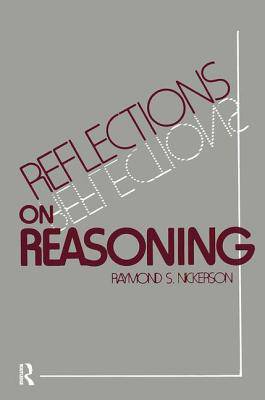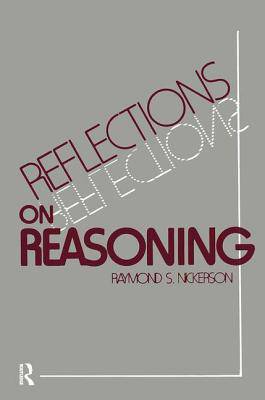
- Retrait gratuit dans votre magasin Club
- 7.000.000 titres dans notre catalogue
- Payer en toute sécurité
- Toujours un magasin près de chez vous
- Retrait gratuit dans votre magasin Club
- 7.000.0000 titres dans notre catalogue
- Payer en toute sécurité
- Toujours un magasin près de chez vous
Description
This book is an adaptation of a report entitled Notes about Reasoning, prepared under a project on The Training of Higher Cognitive Learning and Thinking Skills that was sponsored by the National Institute of Education. My purpose in producing the notes was to help me clarify my own thinking about reasoning and how the ability to reason effectively might be enhanced in the classroom. I did not intend to write a textbook on reasoning or a scholarly review of research on reasoning processes, and this book is not presented as either now. It still has the character of a collection of thoughts; it is being published with the hope that some of the ideas and suggestions in it may stimulate some others, especially teachers and students, to reflect more than they otherwise might have upon what it means to reason effectively. One does not, of course, become an effective reasoner by reading a book on reasoning or by taking a course in reasoning. Learning to reason well is surely a lifelong process--or at least a lifelong challenge. If this book is useful in helping some readers to see the value of an enduring commitment to that challenge, it will have served its purpose. I wish to thank the NIE Project Officers, Patricia Butler and Joseph Psotka, for their support and encouragement. I am grateful also to John Swets, Richard Herrnstein, David Perkins and Carol Chomsky for helpful comments on an early draft of the manuscript, to Anne Kerwin and Patricia Carroll for typing the manuscript and to Brenda Starr and Frank DiPace for making electronic delivery of it to the printer possible by working around the differences between the sending and receiving systems. Special thanks to my wife, Doris, for her constant help of countless types, and most especially for bringing into the world the four beautiful people to whom this book is dedicated.
Spécifications
Parties prenantes
- Auteur(s) :
- Editeur:
Contenu
- Nombre de pages :
- 150
- Langue:
- Anglais
Caractéristiques
- EAN:
- 9780898597622
- Date de parution :
- 01-06-86
- Format:
- Livre relié
- Format numérique:
- Genaaid
- Dimensions :
- 138 mm x 297 mm
- Poids :
- 426 g

Les avis
Nous publions uniquement les avis qui respectent les conditions requises. Consultez nos conditions pour les avis.






